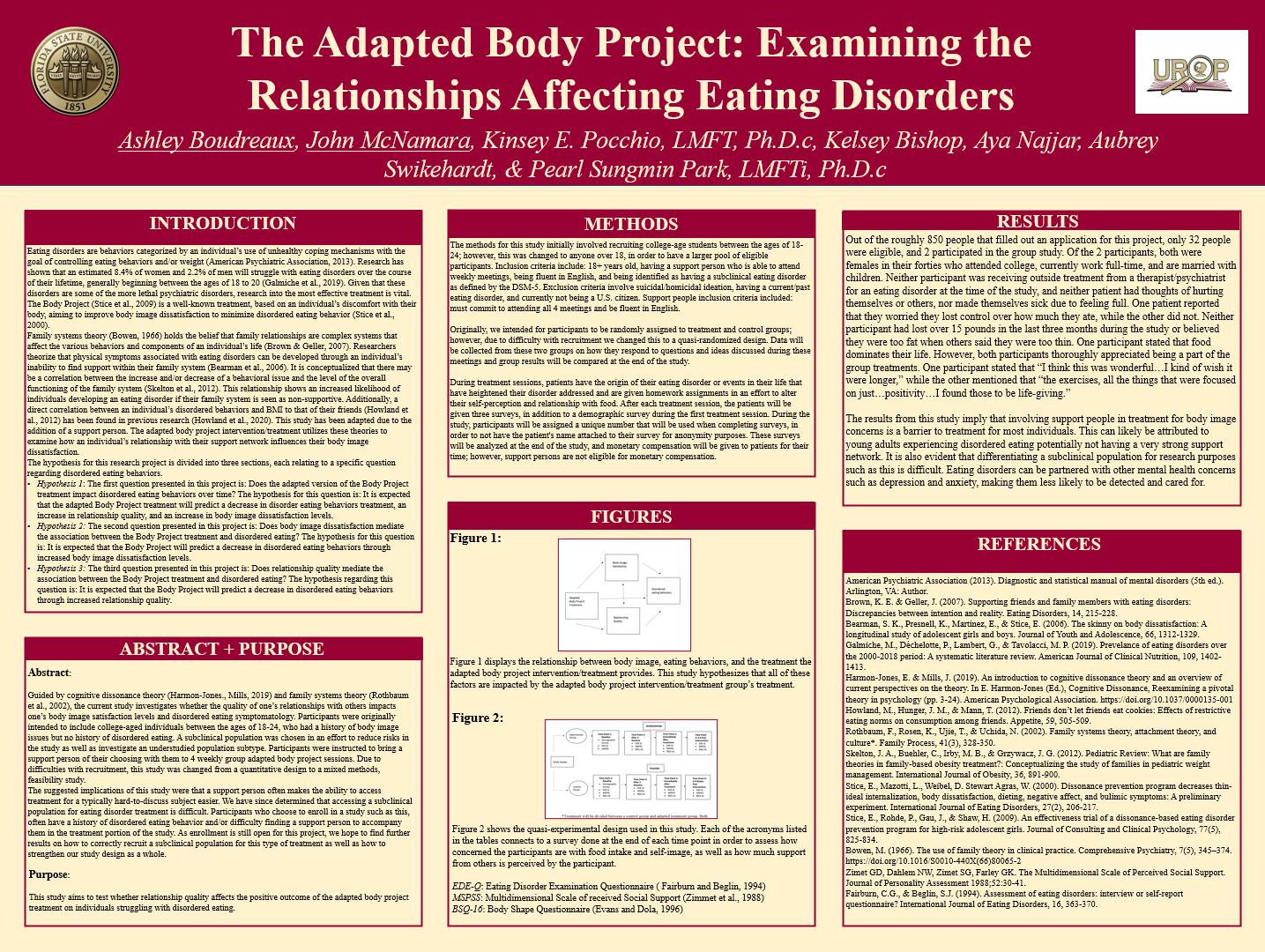Research Symposium
23rd annual Undergraduate Research Symposium, April 6, 2023
Ashley Boudreaux Poster Session 4: 4:00 pm - 5:00 pm/ Poster #300

BIO
My name is Ashley Boudreaux, and I am a first-year student from Sarasota, FL pursuing a dual-degree in Creative Writing and Interdisciplinary Social Sciences. On campus, I serve as the Director of the Mental Health Council, as well as being a member of the Presidential Scholars class of 2026. As my research interests pertain to mental health, this project stood out to me as a unique opportunity to aid those struggling with disordered eating and body image dissatisfaction.
The Adapted Body Project: Examining the Relationships Affecting Eating Disorders
Authors: Ashley Boudreaux, Kinsey PocchioStudent Major: English (Creative Writing) and ISS (Inequalities and Society)
Mentor: Kinsey Pocchio
Mentor's Department: Human Development & Family Sciences Mentor's College: College of Health and Human Sciences Co-Presenters: John McNamara
Abstract
Guided by cognitive dissonance theory (Harmon-Jones., Mills, 2019) and family systems theory (Rothbaum et al., 2002), the current study investigates whether the quality of one’s relationships with others impacts one’s body image satisfaction levels and disordered eating symptomatology. Participants were originally intended to include college-aged individuals between the ages of 18-24, who had a history of body image issues but no history of disordered eating. A subclinical population was chosen in an effort to reduce risks in the study as well as investigate an understudied population subtype. Participants were instructed to bring a support person of their choosing with them to 4 weekly group adapted body project sessions. Due to difficulties with recruitment, this study was changed from a quantitative design to a mixed methods, feasibility study.
The suggested implications of this study were that a support person often makes the ability to access treatment for a typically hard-to-discuss subject easier. We have since determined that accessing a subclinical population for eating disorder treatment is difficult. Participants who choose to enroll in a study such as this, often have a history of disordered eating behavior and/or difficulty finding a support person to accompany them in the treatment portion of the study. As enrollment is still open for this project, we hope to find further results on how to correctly recruit a subclinical population for this type of treatment as well as how to strengthen our study design as a whole.
Keywords: Adapted Body Project

